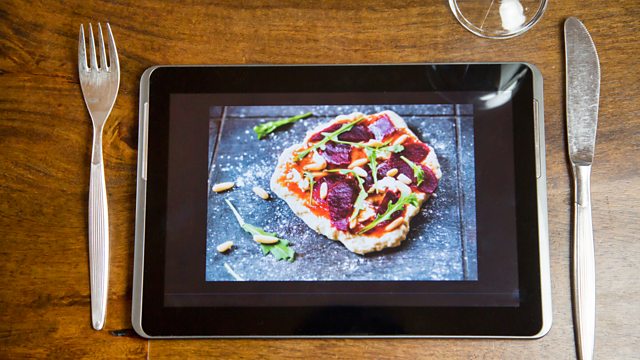Taste
Eating is a visceral, analogue experience, but is technology changing the way we taste? Aleks Krotoski explores how tech is changing not just food, but also we eaters ourselves.
Food is a universal necessity, human brains light up more for food than any other experience, so it's little wonder that food culture has exploded online. Social media is festooned with pictures, recipes, cooking videos and we can't seem to ever get enough.
But, is the digital world doing more than getting our mouths watering? Could technology be changing the very way we taste?
In this episode, Aleks Krotoski explores how food trends develop and shape our culture and spread on social media, as well as exploring new tech that may change the way we eat - from 3D printed delights, to Chef Watson who creates recipes in the cloud, and even how we might manipulate our brains to change how we perceive flavour.
Producer: Elizabeth Ann Duffy.
Last on
More episodes
Previous
Next
Clip
-
![]()
Spoons and Simulations
Duration: 00:25
Elizabeth Atia

Kjeld Van Bommel

Ailbhe Malone

Florian Pinel

David Sax

is a journalist, foodie and author of the Tastemakers. He explains the power of food trends and how they spread and evolve to change our collective taste.
Photo Credit: Christopher Farber
Charles Spence

a cognitive psychologist, author of The Perfect Meal: The Multisensory Science of Food and Dining, and head of the Crossmodal Research Laboratory at The University of Oxford. He tells us how Taste affects the brain, and how our sensory perceptions of food can be manipulated and changed.
Broadcasts
- Mon 18 Apr 2016 16:30Βι¶ΉΤΌΕΔ Radio 4
- Wed 3 Aug 2016 23:30Βι¶ΉΤΌΕΔ Radio 4
Podcast
-
![]()
The Digital Human
Aleks Krotoski explores the digital world



